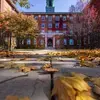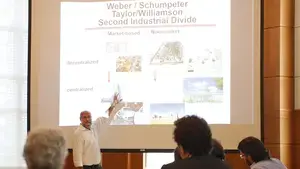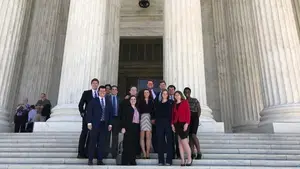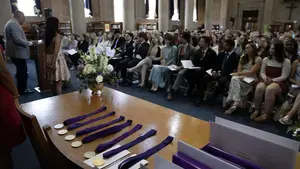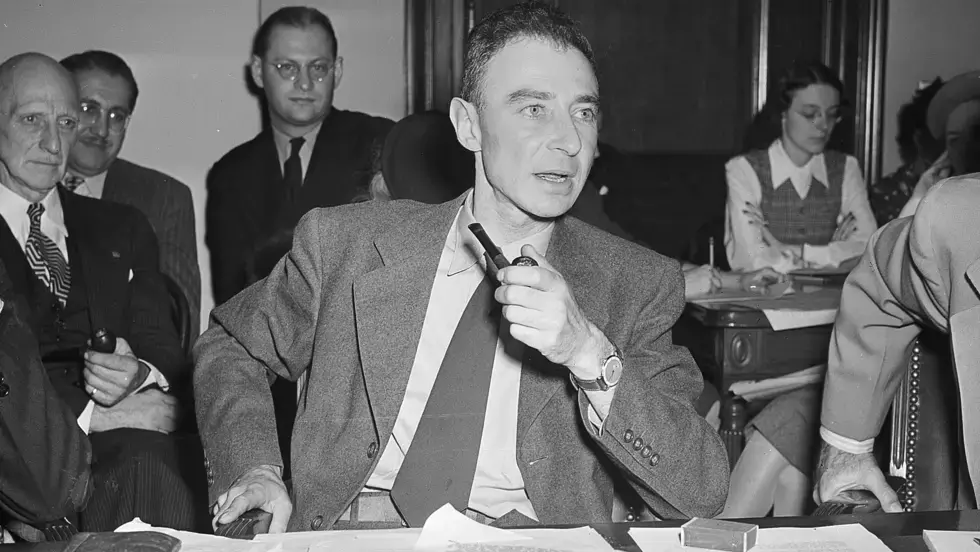
Political Science
Areas of Study
In uniformly small classes, students also improve their critical and analytical skills and competence in oral and written expression. Students majoring in political science take courses in four main areas:
- American government
- Political philosophy
- Comparative politics
- International relations
Requirements
Students majoring in political science are required to take the department’s introductory course in each of the four subfields. We strongly encourage students to complete all four introductory courses by the end of the sophomore year.
POLS 100 Principles of American Government
POLS 101 Introduction to Political Philosophy
POLS 102 Introduction To Comparative Politics
POLS 103 Introduction to International Relations
These courses are numbered higher than 103. In addition to the introductory courses, political science majors must take at least six upper-division courses for a minimum total of 10 courses and a maximum of 14 to complete the major.
Of the six elective, upper-division courses, only ONE of the following courses may be accepted as completing major requirements: ACIP 381, DCSP 381, CISS 230 (when taught by a POLS faculty) and POLS 110, formally POLS 199 - Race and Ethnicity Politics).
Honors students are required to complete a total of 11 courses in the major (10 + 1). In addition to the 10 courses required of all political science majors, thesis writers will take two thesis supervision courses. Of the two thesis supervision courses, one will count towards the major (+1), while the other may count towards general College electives.
Note: A prerequisite for all honors students seeking a POLS faculty advisor is the successful completion of POLS 204 (Performing Research in Political Science) or an equivalent research methods course. This requirement applies to students in both POLS Honors and College Honors.
- Principles of American Government
- Introduction to Political Philosophy
- Race and Ethnicity Politics
- Constitutional Law: National Powers
- Congress and the Legislative Process
- Performing Research in Political Science
- Introduction to International Relations
- Latin American Politics
- Islamic Political Thought
- The Politics of Post-Communism
- International Political Economy
Meet Your Department Chair

Opportunities
Honors Thesis
The political science department offers an honors thesis program for those students who have done distinguished work in their political science classes. This program should be of particular interest to students considering graduate studies in political science or related fields. Application to the political science honors program is by invitation only.
Charles Carroll Program
The Charles Carroll program, named after the only Catholic signer of the Declaration of Independence, enriches the department’s curriculum through its focus on the major themes of the American political tradition and the tradition of political philosophy — themes intimately connected to the College’s broader commitment to the liberal arts and the Jesuit educational mission. The program brings distinguished guest lecturers on these subjects from a variety of perspectives each year; funds a sophomore seminar, to which admission is competitive; supports two postdoctoral students, who enrich our course offerings; and also provides students with opportunities for paid summer research internships.
Washington Semester Program
Many political science majors spend a semester working, studying and conducting research in Washington, D.C., although this program is open to majors in other disciplines as well. Each student obtains an internship in a government office or in organizations dealing with politics, communications, business, education, law, social service, health and other public policy issues. Besides the internship, students participate in a weekly public-policy seminar and write a thesis under the guidance of College faculty.
Study Abroad
Political Science majors are encouraged to study abroad. Most programs abroad will offer courses that can be used to complete Political Science major requirements, but students should review the information below before considering this opportunity.
Honors Society
The political science department sponsors a chapter of Pi Sigma Alpha, the national political science honorary society. Admission (in either the junior or senior year) is based on the student’s grades.
Frequently Asked Questions
No, the political science faculty believe that students who wish to pursue political science as a course of study are best served by completing all the requirements for the major. Therefore, the department does not offer political science as a minor.
Yes. The political science department will grant up to three units of course credit toward the major for political science courses taken during a full year of study abroad. For students who study abroad just one semester, the department will grant up to two units of credit toward the major. Students may not use courses taken abroad to fulfill any of the four introductory course requirements, but courses taken abroad may be used as appropriate to fulfill upper-division requirements within the major. Note that all Study Abroad courses to be counted toward the major must be approved in advance by the political science department chair or the department’s Study Abroad advisor.
Yes. Every semester, several political science majors participate in the Washington Semester Program. Though students may NOT count their Washington thesis as one of the 10 courses required for their political science major, the Public Policy Seminar taken in D.C. may be counted toward the major.
As a rule, yes. A score of 5 on the American Politics and Government exam exempts students from having to take Principles of American Government, although they will still have to take 10 courses for the major. A score of 5 on the Comparative Politics and Government exempts students from taking Introduction to Comparative Politics, although students will still need to take 10 courses for the major. AP courses taken in certain years may not count toward the major if the department deems that certain disturbances (such as the Covid 19 pandemic, for instance) compromised the full content of the courses and/or exams.
Yes, if approved by the Chair of POLS and/or the POLS faculty advisor for Study Abroad. Also, credit will be granted as appropriate for students transferring to Holy Cross from other colleges and universities.
All four introductory courses are designed for students with no prior background in political science, so you may take them in whatever order best suits your needs and preferences. If you’re not sure yet whether you want to major in political science, it’s probably best to begin with the introductory course that seems most interesting to you. In any case, the department strongly recommends that political science majors complete all four introductory courses by the end of the sophomore year. If you plan to participate in the Washington Semester Program, it is strongly recommended that you also complete one or two upper-division courses before doing so as preparation for the thesis component of the program.
Yes. Note that there are two different programs through which a student can write an honors thesis. One is the political science department honors program, which is open to qualified students. The application process for this program takes place during the spring semester of the junior year. The thesis itself is a two-semester project that counts as one course during each semester of the senior year, though only one of this two-course sequence can be counted toward the major. POLS students can also write a political science thesis within the framework of the College Honors Program. To gain POLS credit, however, that College Honors student must work with a political science faculty advisor and gain approval for their proposed thesis through the same process as students in the department honors program.
